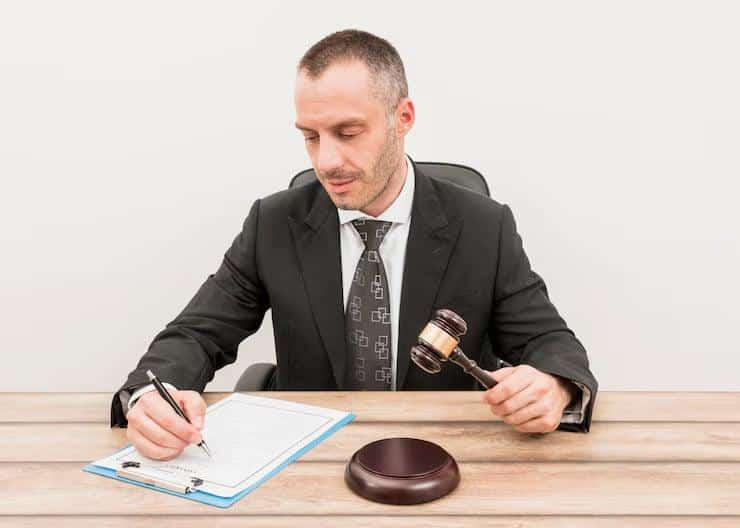
After a car accident or personal injury, one of the first calls you might receive is from an insurance adjuster. They’ll sound friendly, helpful, and concerned. Then comes the request: “Can we record a quick statement from you about the incident?”
This is what’s called a recorded statement, and agreeing to give one without legal support can seriously harm your chances of receiving fair compensation. In this blog, we’ll explore what a recorded statement really is, why insurance companies ask for them, and why you should never give one without first speaking to a lawyer.
What Is a Recorded Statement?
A recorded statement is a verbal account you provide, typically over the phone, about an accident or injury. The insurance adjuster records your answers, and this recording can be used during settlement negotiations or legal proceedings.
These statements usually include:
- When and where the accident occurred
- Who was involved
- What you were doing at the time
- Injuries you may have suffered
- Medical treatment you’ve received
The tone of these questions might appear casual, but make no mistake,your words are being documented and will be reviewed thoroughly by the insurance company’s legal team.
Why Insurance Companies Want a Recorded Statement
Insurance companies are not neutral. Their primary goal is to limit how much they pay out on claims. The recorded statement is one of the most common tactics used to achieve that goal.
Here’s why they ask for one:
1. To Catch Inconsistencies
Even small variations in your story can be used to claim you’re not credible. If you later remember additional injuries or details, they may argue you’re being dishonest.
2. To Minimize Injuries
If you downplay how you feel or forget to mention a symptom, they can argue that your injury wasn’t serious. Statements like “I’m feeling okay” may be used against you even if your condition worsens later.
3. To Lock You Into a Version of Events
Once you give a recorded statement, it becomes very difficult to correct or clarify anything later. They will hold you to those initial words.
4. To Blame You
Even a casual comment like “I didn’t see the other car coming” may be twisted into an admission of fault.
How a Recorded Statement Can Hurt Your Case

Providing a recorded statement too early,especially without legal advice,can lead to long-term consequences:
– Weakened Injury Claim
If you leave out any symptoms or say something that contradicts medical records, the insurer may use this to dispute your need for treatment.
– Denial of Liability
Your words can be used to argue you were fully or partially responsible for the accident.
– Reduced Settlement Offers
Even minor slip-ups or vague answers can lead to lowball offers, costing you thousands in rightful compensation.
Common Mistakes Made During Recorded Statements
People don’t usually intend to hurt their cases, but it happens due to pressure, confusion, or not knowing what to say. Here are some common mistakes:
- Admitting partial fault without realizing it
- Speculating about what happened instead of stating facts
- Guessing about your injuries or treatment
- Failing to mention symptoms that show up later
- Contradicting medical records without realizing
Remember, insurance adjusters are trained to ask questions that subtly lead you into saying something damaging.
When Is It Safe to Give a Statement?
You should never give a recorded statement to the other party’s insurance company without first speaking to a lawyer.
Even your own insurance company should not receive a statement without caution. While you may be contractually obligated to cooperate, that doesn’t mean you must give a recorded statement immediately or without preparation.
A lawyer can:
- Prepare you for the kinds of questions to expect
- Be present during the statement
- Ensure accuracy and clarity
- Prevent you from being misled or manipulated
Why Some People Feel Pressured to Give a Statement
Many people feel they don’t have a choice. Here’s why:
- The adjuster seems friendly and says it’s routine
- They say it’s “just to speed things up”
- You’re trying to be cooperative
- You don’t realize the legal risks involved
- You fear delaying the process will hurt your claim
The truth is, you are not legally required to give a recorded statement to the other party’s insurer. And any pressure they apply is designed to benefit them,not you.
What to Do If You’ve Already Given a Recorded Statement
If you’ve already given a recorded statement, all is not lost,but you should act quickly:
- Contact a lawyer immediately to discuss damage control
- Request a copy of the recording
- Review your medical records for consistency
- Avoid giving any further statements without legal advice
The earlier you bring in legal help, the better your chances of minimizing any harm caused.
How to Respond to a Request for a Recorded Statement
Here are a few polite but firm ways to respond if an insurance adjuster asks for a statement:
- “I’m not comfortable giving a recorded statement at this time.”
- “I’ll need to speak to my attorney before I agree to anything.”
- “Please direct all communication through my lawyer.”
- “I understand your need for information, but I won’t be providing a statement.”
You are well within your rights to decline until you’ve consulted with legal counsel.
How Ted Law Firm Can Help Protect Your Rights
At Ted Law Firm, we handle injury claims with care and attention to detail. When insurance companies use recorded statements to deny or undervalue your claim, we step in to protect your interests.
We help by:
- Advising clients on how to respond to insurer requests
- Attending all statement recordings
- Reviewing and correcting misleading or damaging statements
- Negotiating with the insurer from a position of strength
Your words matter. Let us help you make sure they don’t get used against you.
Final Thoughts
A recorded statement may seem like a simple request, but it’s often a strategic tool used by insurance companies to avoid fair payouts. The risks of giving one without legal support far outweigh any potential benefits.
Before you speak to an insurance adjuster, speak to a lawyer. Your future compensation may depend on it
About Ted Law Firm
At Ted Law Firm, we serve injury victims across Aiken, Anderson, Myrtle Beach, North Augusta, Orangeburg, Charleston, Columbia, Greenville, and Summerville. If you’ve been hurt due to someone else’s actions, don’t give a recorded statement without a lawyer. Insurance companies may use it against you .Our experienced attorneys can protect your rights and help you seek fair compensation, including emotional damages.
Contact Ted Law Firm today for a free consultation.
